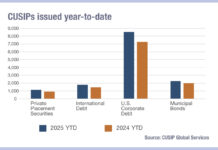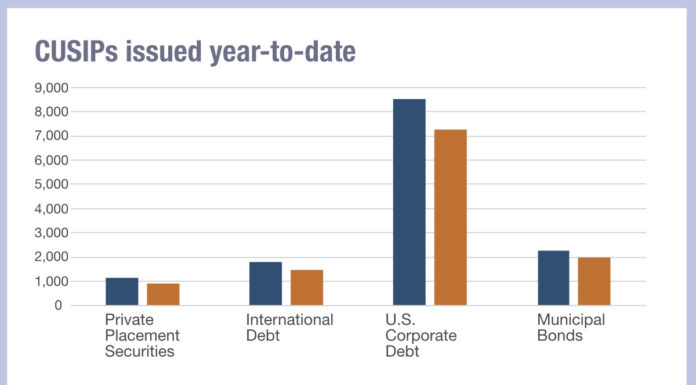The cost of insuring against sovereign debt defaults has increased by an average of 102% over the past year, according to research by global specialty (re)insurance group Chaucer.
The last twelve months has seen the cost of credit default swaps used to insure against a default on the debt of a third party, such as a government, soar as the global economy has deteriorated.
Investors are increasingly concerned that the sharp hike in interest rates globally, which have led to soaring debt servicing costs for governments and an economic slowdown, have increased the risk of countries defaulting. In the past year, yields on government bonds have risen sharply, from 0.68% to 3.15% on UK 10-year gilts.
The increase in the value of the dollar has also added to the cost of servicing that portion of emerging market Government debt that is denominated in dollars.
Chaucer says that 90.9% of the 88 countries in its study have seen the cost of credit default swaps on their sovereign debt rise.
The UK has seen the cost of its credit default swaps (CDS) on its sovereign debt rise by 148% over the past year.
Whilst the cost of insuring against a sovereign debt default has risen sharply in the last year interest in other forms of insuring against the impact of a government getting into financial difficulty have also soared, for example “contract frustration insurance”.
Governments keen to cut expenditure can be tempted to cancel corporate contracts to reduce spending. Contract frustration insurance protects against this.
The firms says, while emerging economies are most likely to be most affected by governments going through radical cost cutting measures and cancelling commercial contracts, demand for contract frustration insurance against the actions of Western economies is also growing.
In the wake of the 2007 global financial crisis, outsourcing and IT contracts were cancelled by governments across developed economies. A repeat of a global recession now could affect government contracts for corporates from industries as varied as construction, infrastructure and property.
Contract frustration insurance provides companies with cover for non-performance of contractual obligations, including non-payment and non-honouring, by foreign state-owned and government entities, i.e. non delivery of goods or services due to a trigger event, such as a default by a government entity.
Contract frustration insurance can also protect against cancellation of licences issued by foreign governments, as well as sanctions and boycotts that result in interruption, defaults or other losses. Losses have to be because of a political force majeure event and/or an event from action by a supranational or government entity.

Jonathan Bint, senior analyst & underwriter at Chaucer says, “What is noticeable is the demand for insurance against contract frustration in major G7 economies. Normally demand for insurance against Governments cancelling contracts is restricted to more volatile economies. Now we are seeing demand for this kind of insurance to cover contracts in countries like the UK, France and Italy.”
“Rising sovereign debt, interest rate hikes and negative economic growth make a perfect storm for the global economy and businesses could be left exposed to government contracts being cancelled without safeguards in place.”
“Contract frustration insurance can offer protection against the risk of governments cancelling contracts, which could mean the difference between a business surviving or not.”
With interest rates anticipated to rise higher across developed economies with inflation still rampant, CDS may increase in value even more in the coming months.
CDS rose 112% on average across Europe, 54% in the Americas, 179% in Asia & Pacific, 70% across Africa and 1% in the Middle East.
©Markets Media Europe 2022
©Markets Media Europe 2025


























